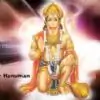(1) Relationship between Dharma, Artha, Kama and Moksha:
Human life is consumed in chasing materialism (Artha) and sense pleasures (Kama). Ramayana makes it clear that these two pursuits should never be at the cost of Dharma (righteousness). In withholding dharma, both artha and Kama can be and must be sacrificed. The ultimate goal of life is Moksha (liberation) and it can be attained only by relinquishing Artha and Kama and by strictly following a life of Dharma.
(2) The importance of one man being wedded to only one wife:
During Ramayana period, polygamy was quite prevalent and it was quite an acceptable social norm for kings to marry many women. Rama's own father Dasaratha was wedded to 3 wives (queens) and he had innumerable concubines at his palace. In a stark contrast to his father, Rama remained wedded and staunchly loyal to his only wife Sita. With this qualification, he held his head high as the greatest king ever ruled in Bharat. He set example for future generations of men as to what constitutes a sterling quality for the respectability of a man in society.
(3) Adherence to truth and the need to honor one's word:
When Rama was a young boy, the love and affection his father Dasarata had on him was immense. He would never like to be separated from his son. But when he had promised to offer whatever help that the visiting Sage Viswamitra asked for and when the sage requested for Rama's help to fight the demons at the forest, Dasarata was terribly.
shocked. But still, he agreed to part with Rama, to honor his promise.
Later in time, when his third wife Kaikeyi wanted the throne of Ayodhya for her own son Bharata and wanted Rama to be sent in exile to the forest, it was nothing short of a deathly blow to Dasarata. But still, he could never use his kingly authority to veto her request, because of the promise he had made long ago to Kaikeyi, to grant her two boons whenever she chose to ask.
(4) Respecting father's word of Honor:
Just on the previous night to Rama's crowning ceremony, Kaikeyi made use of her boons not only to deny Rama his rightful ascend to the kingdom, but also to send him in exile to the forest. Rama, as a kshatriya (a person belonging to ruler/ warrior class), had every right to question such an injustice meted out to him and he was in not really duty-bound to honor his father's unjust promises. But true to his greatness, Rama, with utter detachment and without even a trace of disappointment reflecting on his face, conceded to both the demands. For him, "pitru vakya paripalanam" (honoring his father's words) was one of the highest dharmas.
(5) The futility of listening to vicious counseling:
Kaikeyi, an essentially good natured woman, meekly allowed her very loyal maid servant Mandara to brain-wash her into demanding these two atrocious boons from Dasarata. Though she was not enthusiastic in the beginning, she gradually allowed Mandara's venomous words to poison her mind. Did she gain anything finally by asking these boons? No. She lost her beloved husband Dasarata who died very soon, on account of the shock and the pain of separation from his beloved son Rama. Bharata, Kaikeyi's son, for whom she obtained the very kingdom, reprimanded her for her atrocious act and he never ever took charge of the kingdom as a King.
Now see a contrast: Upon hearing the developments, Lakshmana, the most beloved brother of Rama, who was by nature short tempered, like a true Kshatriya, got instantly flared up. He could not just tolerate the injustice meted out to Rama. He wanted Rama to fight for his rights; he wanted to proceed and fight with his father and imprison Kaikeyi. But the ever sober Rama, never heeded to his counsel. He pacified Lakshmana with soothing words, pointing out the need for adhering to dharma. The effect of Rama's counseling not only pacified Lakshmana, but also gave him a steely resolution to relinquish his own comforts of the palace to accompany Rama to the forest,despite the latter's objections to it.
(6) Not accepting any booty coming in unjust way:
Bharata, the son of Kaikeyi, is another sterling character in Ramayana, who just could not tolerate the very idea of bequeathing the throne that rightfully belong to his elder brother Rama but wrongly acquired for his sake by his mother. He was full of wrath towards his mother on this issue. He went to the forest in search of his brother and requested him earnestly to return to the country and take up its rule. As Rama refused to concede, he took Rama's pair of footwear and carried it on his head; he placed them on the throne of Ayodhya and took care of administration of the country as a representative.
(7) The futility of getting swayed by dubious attractions:
Sita, in the forest, got madly attracted by a beautiful golden deer. She refused to heed to her husband's counsel that such a deer could not be a natural one and it could be a demon in disguise. It is her incessant pestering to acquire the deer to be her play-mate that forced Rama to go behind it. It paved the way for her getting separated from him and she got forcibly abducted by Ravana, the demon.
(8) The importance of being watchful about one's utterances:
When Rama killed the demon Maricha who came disguised as the golden deer, the demon called out "Lakshmana! Sita!" in Rama's mimicked voice and died. Sita, upon hearing it, urged Lakshmana, who was standing guard to her, to go and help Rama, who seemed to be in trouble. Lakshmana's patient counseling against it could not convince her. In a fit of rage without any control of her words, she accused Lakshmana of nurturing an evil idea of having an illicit relationship with her in the absence of Rama. Lakshmana, shell shocked by hearing such an abominable accusation, had to leave immediately, leaving her alone. Ravana utilized this opportunity to abduct her.
Some interpreters of Ramayana would say that Sita was forced to prove her chastity by the test of fire by Rama (after she was freed from the clutches of Ravana) only because of her intemperate and terrible accusation against the saintly and devout Lakshmana.
(9) The importance of fighting atrocity against woman:
Jatayu, the aged and once powerful bird, who noticed Ravana abducting Sita forcefully and flying with her in his vehicle towards his country Lanka, fought valiantly to obstruct Ravana and release Sita, but could not succeed in its effort. The bird sacrificed its very life on such a noble effort. Before breathing its last, Jatayu managed to convey the news to Rama, who, moved to tears by the gallantry of the old bird, did its last rites and funeral, as though he was the son of the bird.
(10) Divinely love transcends all barriers of caste and creed:
The lowly fisherman Guha, who was full of devotion to Rama, who helped Rama, Lakshmana and Sita to cross the river Ganges in a boat, was accepted as a brother by the King Rama. Likewise, Sabari, an old hunter woman of low caste, became a staunch devotee of Rama, just by hearing about Rama's greatness.When Rama was wandering the forests in search of Sita, Rama happened to visit Sabari's hut and the old lady, overwhelmed with love for Rama reportedly offered to him fruits after nibbling each a bit to make sure that she did not offer sour fruits to her beloved Rama. Rama treated Sabari as though she was his own mother and showered his grace on her.
(11) The importance of humility as a great virtue:
Hanuman, the minister of the estranged Vanar king Sugriva was one of the greatest characters of Ramayana. Hanuman was physically very powerful, was a great diplomat, was very erudite in spoken words and was full of wisdom. Yet his humility was unsurpassed. The moment he met Rama, he was bowled over by Rama's divinity and charm and he committed himself to be the life-long servant of Rama. The great feats he did in the service of Rama subsequently were unparalleled and the humility he displayed despite his greatness was unfathomable.
(12) The greatness of true friendship:
Rama befriended the estranged Vanar King Sugriva (who's brother Vali forcefully took Sugriva's wife and also denied his share of Vanar kingdom) with a mutual promise of help - Rama to eliminate the immensely powerful Vali and Sugriva in turn to help Rama to seek and locate Sita and wage war against Ravana to retrive Sita. Both did a commendable job in honoring their words.
(13) Showing mercy even to the enemy:
Ravana's younger brother Vibhishan was an extremely righteous person who was bold enough to warn and advice Ravana against his act of immorality in abducting the wife of another person to satisfying his carnal desires. When the furious Ravana showed the doors to his brother, Vibhishana came and surrendered to Rama. Despite reservations from Sugriva and others, Rama accepted Vibhishana into his fold.
On the first fiery combat between Rama and Ravana, Rama destroyed all the weapons and armor of Ravana; Ravana stood on the war field, unprotected. Rama, who could have easily killed Ravana at that moment, in one of the greatest acts of graciousness, asked Ravana to retire for the day and return to the war field the next day, fully re-armed, as it was against dharma to kill an un-armed person.
(14) The need for the highest standards in a King:
After annihilating Ravana and freeing Sita from confinement, Rama did one of the most controversial and oft criticized demand by asking Sita to jump into the fire to prove her chastity. Sita did it and came out unscathed. Rama took her into his loving fold once again.
But later, when he became King of Ayodhya, he came to know of a washer man talking ill of Rama for having accepted his wife Sita who had stayed in the confinement of his enemy for months. Rama, whose love for Sita was unfathomable, took the most painful decision of relinquishing her, just because he had to maintain a very high order of personal probity as the ruler of Ayodhya.
One can go on discussing any more number of lessons of morality and dharma by reading Ramayana in depth. It is no wonder that Ramayana as a source book of a wonderful story for the children and elders alike, as a wondrous piece of literature and as a source book of guidance on righteous living has stood the tests of time. It continues to inspire millions of people cutting across religion and linguistic barriers across the globe.
Edited by rajnish_here - 17 years ago




























